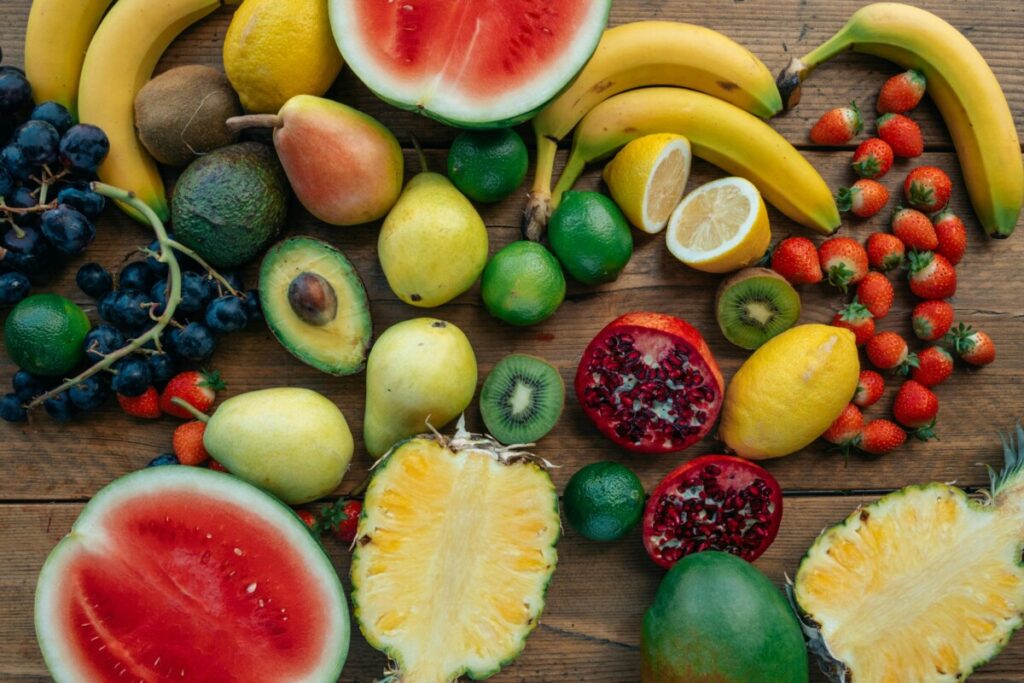Nutritional Aspects of Physical Fitness

When it comes to physical fitness, many people tend to focus on exercise and training regimens. While these are undoubtedly important, it’s crucial not to overlook the role of nutrition in achieving optimal performance and overall health. The food you consume on a daily basis plays a significant role in fueling your body, aiding in muscle repair and growth, and supporting overall physical fitness. In this article, we will explore the various nutritional aspects of physical fitness and understand how proper nutrition can benefit your fitness journey.
The Role of Nutrition in Physical Fitness
A closer look at the relationship between nutrition and physical fitness:
Nutrition and physical fitness go hand in hand. The food you eat provides the necessary fuel to perform physical activities and workouts. Without the right nutrients, your body won’t have the energy it needs to excel in your fitness endeavors. Additionally, nutrition plays a vital role in recovery, muscle repair, and overall performance.
How does nutrition impact athletic performance?
Not only does nutrition provide energy for physical activities, but it also influences your performance. Proper nutrition can enhance endurance, strength, speed, and overall athletic performance. Eating a well-balanced diet, rich in essential nutrients, can optimize your body’s ability to perform at its best.
The importance of macronutrients and micronutrients
Macronutrients, including carbohydrates, protein, and fats, are the main sources of fuel for your body. Carbohydrates provide energy, protein supports muscle repair and growth, and healthy fats aid in hormone regulation. Micronutrients, such as vitamins and minerals, are essential for overall health and performance. They play a crucial role in metabolic processes, immune function, and recovery.
The Benefits of Proper Nutrition for Physical Fitness
Proper nutrition offers an array of benefits for physical fitness.
Here are some key advantages:
Enhanced energy levels: Consuming a balanced diet ensures that your body has the energy it needs to power through workouts and physical activities.
Muscle repair and growth: Adequate protein intake promotes muscle repair and growth, helping you recover faster and build strength.
Improved endurance: A well-fueled body can sustain prolonged periods of physical activity, leading to improved endurance.
Optimal body composition: Proper nutrition, combined with exercise, can help maintain a healthy body weight and reduce body fat.
Reduced risk of injuries: Nutrition plays a role in injury prevention and recovery. A well-nourished body is better equipped to handle the stress placed on muscles and joints during physical activities.
Enhanced overall health: Good nutrition supports overall health, boosts immune function, and reduces the risk of chronic diseases, allowing you to lead a more active life.
Understanding Calories and Energy Balance

What are calories?
Calories are a unit of energy derived from the food we consume. They measure the amount of energy our bodies obtain from carbohydrates, protein, and fats. Understanding the concept of calories is necessary to maintain a balanced energy intake.
Energy balance and its impact on body weight
Energy balance refers to the balance between calories consumed and calories burned through physical activity and bodily functions. To maintain body weight, it’s important to achieve an energy balance by consuming the right amount of calories for your activity level. Consuming more calories than you burn can result in weight gain while consuming fewer calories can lead to weight loss.
Key Nutrients for Physical Fitness
To fuel your body for physical fitness, it’s important to consume the right nutrients.
Here are four key nutrients that play a significant role:
1. Carbohydrates for energy
Carbohydrates are the primary source of energy for physical activities. They provide fuel for muscles and help maintain blood glucose levels during workouts. Including a sufficient amount of carbohydrates in your diet can enhance your energy levels and support performance.
How Carbohydrates Fuel Your Workouts
Carbohydrates are broken down into glucose, which is then stored in your muscles as glycogen. During exercise, your body taps into these glycogen stores to provide energy. Consuming carbohydrates before and after workouts can help replenish glycogen stores and optimize performance and recovery.
2. Protein for muscle repair and growth
Protein is crucial for muscle repair, recovery, and growth. It provides the building blocks necessary for repairing damaged muscle fibers and building new ones. Including protein-rich foods in your diet is essential for promoting muscle repair and growth.
The role of protein in recovery and muscle development
Consuming protein after exercise helps repair and rebuild muscles broken down during workouts. It also aids in the synthesis of new muscle tissue, leading to increased strength and overall muscle development. Including a good source of protein in your post-workout meal or snack can optimize the recovery process.
3. Healthy fats for fuel and hormone regulation

While fats often get a bad reputation, they are an important component of a balanced diet. Healthy fats, such as those found in avocados, nuts, and olive oil, provide a steady source of energy and aid in hormone regulation. Including a moderate amount of healthy fats in your diet can support physical fitness and overall well-being.
Why healthy fats are essential for physical fitness
Healthy fats play a role in hormone production, including those involved in muscle growth and repair. They also provide a concentrated source of energy, especially during prolonged endurance activities. Including healthy fats in your diet can improve your body’s ability to utilize stored fat as fuel and enhance physical performance.
4. Vitamins and minerals for overall health and performance
Vitamins and minerals are essential for overall health and performance. They play various roles in metabolic processes, immune function, and recovery. Obtaining a wide range of vitamins and minerals through a balanced diet is crucial for optimal physical fitness.
The importance of essential vitamins and minerals in fitness
Vitamins and minerals are involved in numerous biochemical reactions within the body, including energy production, muscle contraction, and oxygen transport. For example, iron is necessary for the proper functioning of red blood cells, which carry oxygen to muscles during exercise. Lack of essential vitamins and minerals can impair performance and overall health.
Incorporating these key nutrients into your diet can maximize your physical fitness potential and contribute to overall well-being and athletic performance.
Conclusion
In conclusion, understanding the nutritional aspects of physical fitness is crucial for achieving overall wellness. By focusing on balanced nutrition, individuals can optimize their energy levels, support muscle recovery, and enhance their physical performance. Remember to prioritize whole foods, stay hydrated, and consult with a healthcare professional or nutritionist for personalized guidance. With a mindful approach to nutrition and regular physical activity, anyone can work towards their fitness goals and enjoy a healthier, more vibrant lifestyle.
https://fiscalfitnessflow.com/index.php/2024/02/14/nutritional-habits-for-better-sleep/
https://magazine.medlineplus.gov/
FAQ’s
1. How does nutrition impact physical fitness?
Nutrition plays a crucial role in physical fitness as it provides the body with the necessary fuel for energy, supports muscle growth and repair, and helps in overall performance. A well-balanced diet ensures that you have the right nutrients in the right amounts to support your fitness goals.
2. What are some key nutrients essential for physical fitness?
Essential nutrients for physical fitness include carbohydrates for energy, protein for muscle repair and growth, healthy fats for energy and hormone regulation, vitamins and minerals for overall health and performance, and adequate hydration to maintain fluid balance and regulate body temperature.
3. How does the timing of meals and snacks affect physical performance?
The timing of meals and snacks can significantly impact physical performance. Consuming a balanced meal or snack containing carbohydrates and protein about 1-2 hours before exercise provides fuel and sustains energy levels. Additionally, refueling with a combination of carbohydrates and protein within 30 minutes to an hour post-exercise helps replenish glycogen stores and aids in muscle repair and recovery.
4. Can supplements enhance physical fitness?
While a well-rounded diet should provide most of the necessary nutrients for physical fitness, certain supplements may be beneficial for some individuals. For example, athletes may benefit from protein supplements to meet increased protein needs, and creatine supplements may enhance strength and power output during high-intensity exercise. However, it’s important to consult with a healthcare professional or registered dietitian before adding supplements to your regimen.
5. How can hydration impact physical performance?
Hydration is critical for optimal physical performance as even mild dehydration can negatively affect strength, endurance, and cognitive function. It’s essential to drink fluids before, during, and after exercise to replace fluids lost through sweat and maintain proper hydration levels. Water is generally the best choice, but for prolonged or intense exercise, sports drinks containing electrolytes can help replenish lost minerals and maintain fluid balance.





